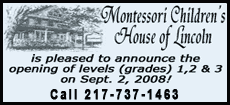|
 Opening bids start at $100,000 for the service being offered by Mill Valley-based BioArts International. The cloning process is to be performed by a South Korean scientist who suffered international disgrace after being found to have faked research. Opening bids start at $100,000 for the service being offered by Mill Valley-based BioArts International. The cloning process is to be performed by a South Korean scientist who suffered international disgrace after being found to have faked research.
BioArts chief executive Lou Hawthorne formerly ran Genetic Savings & Clone, which offered to clone pet cats for $50,000 but folded in 2006 because few were willing to pay so much.
But Hawthorne said in a phone interview that another service his old company provided
-- the storage of pet DNA for future possible clones -- showed him the market for dog clones was strong.
"The average dog owner has a different relationship with his dog than the average cat owner," Hawthorne said. "The level of intensity on the dog side just dwarfed what we saw on the cat side."

To conduct the clonings, BioArts has partnered with a South Korean research team that recently created three clones of Hawthorne's family dog, Missy, who died in 2002.
The team was led by Hwang Woo-suk, who scandalized the international scientific community in 2005 when his breakthrough human cloning research involving embryonic stem cells was found to have been faked.
Tests performed at the University of California, Davis' Veterinary Genetics Laboratory found that DNA samples taken from Missy and the three other dogs appeared to belong to the same individual.
Hawthorne said that after spending 15 years with Missy, he is taking pleasure in seeing her mischievous streak coming out in her clones. They also like steamed broccoli just like she did, he said.

Some groups that monitor advances in genetic technology argue that the company's project, called Best Friends Again, could serve as a gateway to more unsavory practices.
"Many people consider pets to be part of our families," Marcy Darnovsky, associate director of the Oakland-based Center for Genetics and Society, said in a statement. "If we get used to cute cloned puppies, will some people expect cute cloned babies next?"
[to top of second column] |
 Critics also have lambasted the project for its association with Hwang. Earlier this month, a researcher close to Hwang told The Associated Press that the scientist, who went into seclusion after the deception was exposed, had established a pet-cloning company in Seoul.
Hawthorne said he was wary of working with Hwang at first but said the Korean scientist had assembled the best technology and talent available. All of Hwang's results connected to dog cloning have been independently verified, Hawthorne said.
BioArts said in a statement it has been granted the sole license for cloning dogs, cats and endangered species using patented processes developed for the cloning of Dolly the sheep, the first successfully cloned animal.
Groups critical of the dog-cloning effort also say the process is cruel, arguing that hundreds of failures are typical before one mammal is successfully cloned.

But BioArts found that dogs are much less likely to miscarry or give birth to malformed offspring during the cloning process than other animals, Hawthorne said.
"If everything isn't perfect, it doesn't work at all," he said. "With other species, their reproductive systems are more tolerant of error."
The auctions are scheduled to begin June 18.
___
On the Web:
Best Friends Again: http://www.bestfriendsagain.com/
[Associated
Press; By MARCUS WOHLSEN]
Copyright 2008 The Associated
Press. All rights reserved. This material may not be published,
broadcast, rewritten or redistributed.
 |